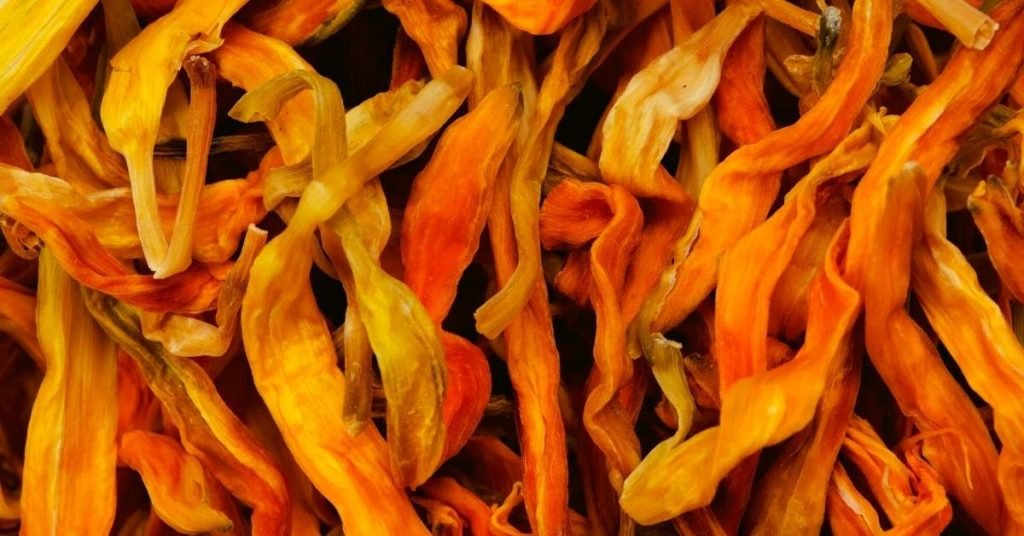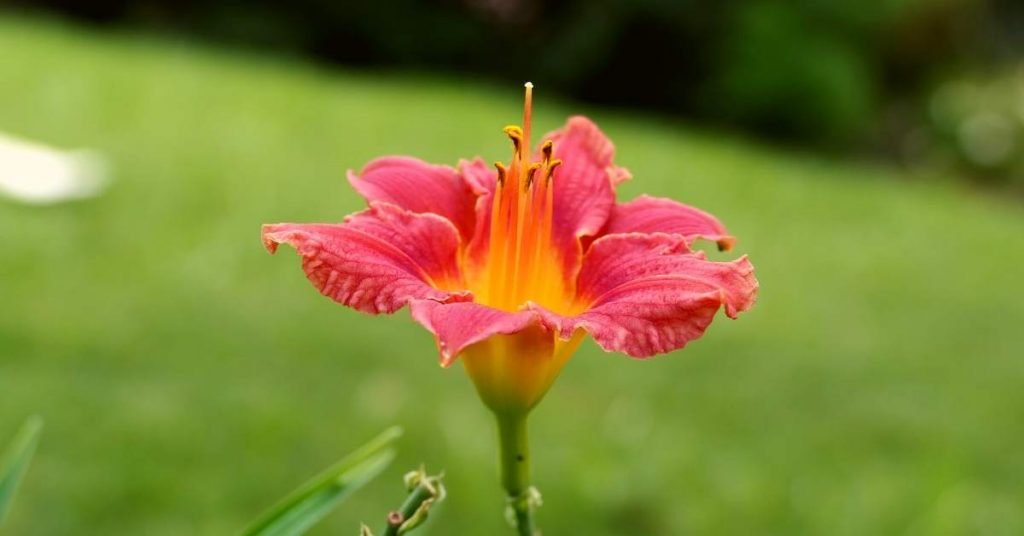Lilies are also known as lilies, although in reality, both terms refer to the genus Lilium, which has approximately 110 species, however, when we talk about the lily flower we quickly evoke the image of a large flower that gives off an intense aroma and that, in addition, can be admired in a multitude of colors: pink, purple, orange, yellow or white.

The term lily flower also refers to another botanical species known as Iris germanica, belonging to the Iridaceae family, which, in addition to having a strong presence in the perfume industry, has various medicinal properties.
Do you want to discover all the medicinal properties of the lily flower? Then, do not miss the following it’s never not tea time article.
What Are the Active Components of the Lily Flower?
The lily flower, also known as lily flower, owes its medicinal properties to the active ingredients it contains, as is the case with any other plant that can be used for therapeutic purposes. Let’s see below what are the main active components of the lily flower:
- Essential oil
- Myristic acid
- Flavonoids
- Calcium oxalate
- Mucilages
- Tannins

The rhizome is the part of the lily flower that contains these active compounds and that, therefore pharmacologically, is considered a vegetal drug. The rhizomes are those stems that grow horizontally below the ground and from which the roots come out.
What Are the Medicinal Properties of the Lily Flower?
The lily flower can be used against numerous disorders, constituting an excellent first-line natural treatment for many conditions. This is due to the various medicinal properties it has:
The lily flower can be used against numerous disorders, constituting an excellent first-line natural treatment for many conditions. This is due to the various medicinal properties it has:
- Expectorant: facilitates the expulsion of the accumulated mucus.
- Demulcent: it moisturizes and keeps the respiratory mucous membranes softened.
- Diuretic: stimulates kidney function and increases urine production.
- Sedative: favors sleep conciliation.
- Antispasmodic: inhibits strong involuntary muscle contractions.
- Purging: stimulates the mobility of the intestines and allows rectal emptying.
When To Drink Lily Flower Tea?
The various medicinal properties that lily flower presents make it a very beneficial tool useful for improving the following disorders:

- Flu
- Cold
- Asthma
- Bronchitis
- Stomach pain
- Insomnia
- Hyperuricemia, gouty arthritis, or gout disease
- Fluid retention
- Constipation
How to use lily flower tea medicinally?
This plant is characterized by blooming between April and June, however, when you want to use it medicinally, it should not be harvested until August.
As mentioned above, the part that is used for therapeutic purposes is the rhizome, and it can be collected by ourselves or purchased in quality herbalist shops. With the rhizome, we can elaborate on two medicinal preparations:
Infusion: to prepare an infusion, you will need 2 grams of rhizome per cup of water. Add both ingredients to a saucepan and bring to a boil, then let steep for about 10 minutes, filter and the tea is ready to be consumed.

Decoction: the lily decoction needs 20 grams of crushed rhizome and 1 liter of water. This mixture is heated for about 2 minutes, just when it has broken the boil, turn off the heat, let it stand, filter, and ingest. This recipe is recommended in those cases in which the lily flower wants to be used as an intestinal purgative.
Aspects to Consider Before Starting a Lily Flower Tea Treatment
It is a common misconception that medicinal plants, being completely natural, cannot have a negative impact on our health, but the term “natural” cannot be confused with “harmless”.
Obviously, a medicinal plant is much less aggressive for our organism than a chemical drug, and if used properly, it can be an excellent treatment for multiple health conditions.
However, medicinal plants contain active ingredients that act in our body in a similar way to a drug, in this sense, they can also be counterproductive in different situations and interact with other medicinal plants or drugs.
If you are a pregnant or breastfeeding woman, if you suffer from any disorder or disease or if you are following a pharmacological treatment, it is essential that you consult your doctor before taking a medicinal preparation of lily flower.
If you’re looking for a special and unique flavor, check out our extraordinary selection of teas at Hummingbird Tearoom. Add any medicinal herb to one of our organic teas elaborated for your enjoyment and health.
MEDICAL DISCLAIMER
Itsnevernotteatime.com cannot and does not contain medical/health advice. The medical/health information is provided for general and educational purposes only and is not a substitute for professional advice.




